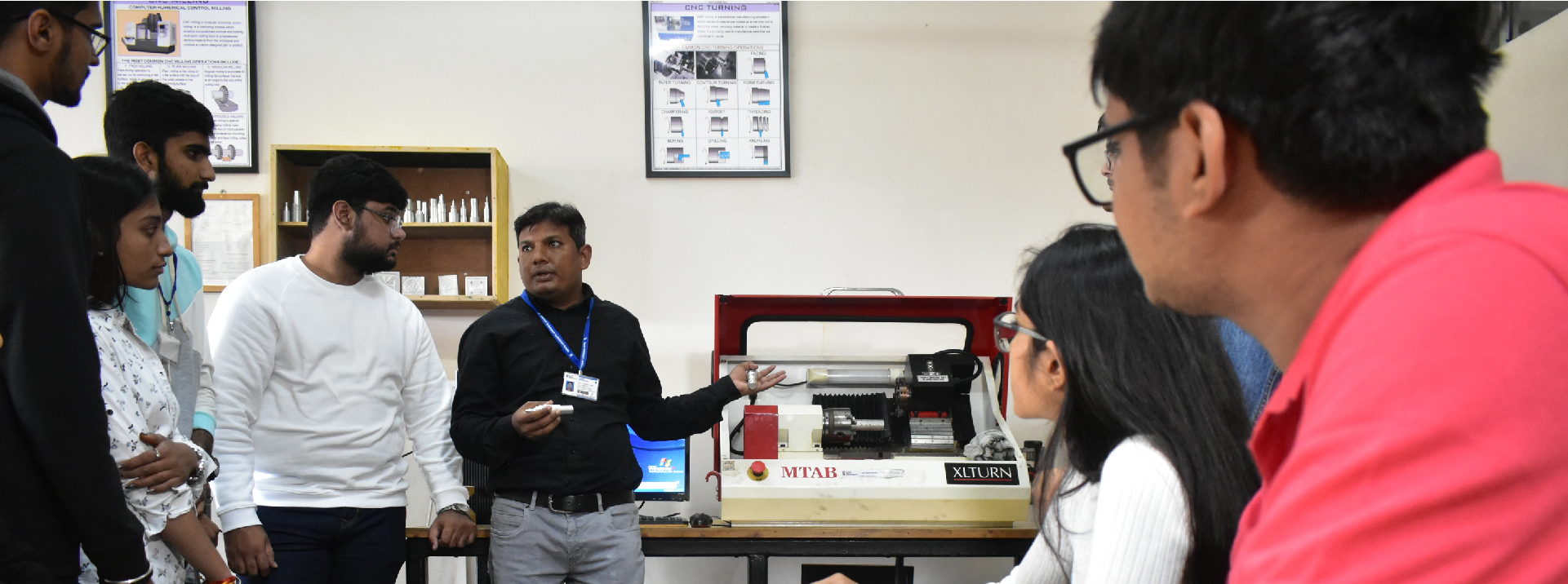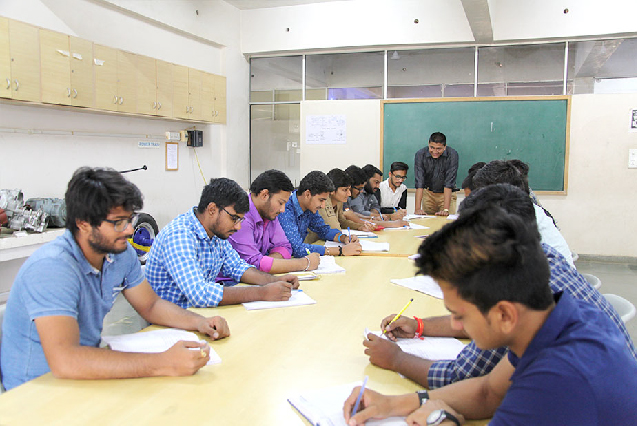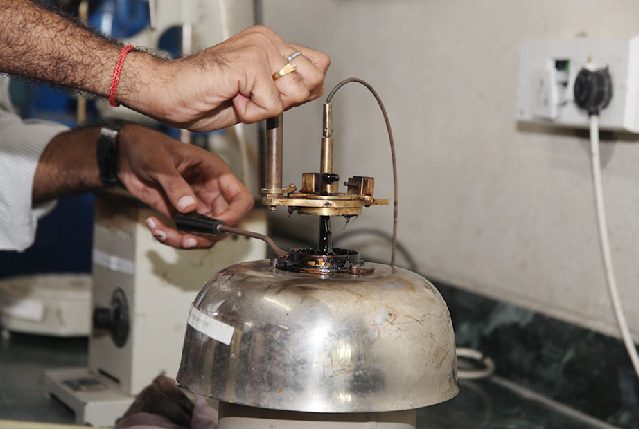Announcement
Get Ready for INDUS CUP 2K26! | Dates: 5–10 January 2026 | Stand a Chance to Win Cash Prizes up to ₹10,00,000!...Read more Get Ready for INDUS CUP 2K26! | Dates: 5–10 January 2026 | Stand a Chance to Win Cash Prizes up to ₹10,00,000!
We are excited to announce the Indus Hackathon 2025, an exhilarating one-day event organized by the CSE Department of Indus University....Read more We are excited to announce the Indus Hackathon 2025, an exhilarating one-day event organized by the CSE Department of Indus University.
26th ISTE Faculty Annual State Convention will be held at Indus University on April 27, 2023....Read more 26th ISTE Faculty Annual State Convention will be held at Indus University on April 27, 2023.
Get Ready for INDUS CUP 2K26! | Dates: 5–10 January 2026 | Stand a Chance to Win Cash Prizes up to ₹10,00,000!...Read more Get Ready for INDUS CUP 2K26! | Dates: 5–10 January 2026 | Stand a Chance to Win Cash Prizes up to ₹10,00,000!
We are excited to announce the Indus Hackathon 2025, an exhilarating one-day event organized by the CSE Department of Indus University....Read more We are excited to announce the Indus Hackathon 2025, an exhilarating one-day event organized by the CSE Department of Indus University.
26th ISTE Faculty Annual State Convention will be held at Indus University on April 27, 2023....Read more 26th ISTE Faculty Annual State Convention will be held at Indus University on April 27, 2023.

The discipline of Mechanical Engineering is one that is continually growing and prospering. The design, development, fabrication of various parts or different types of machines and their maintenance of them are part of learning in this course, one of the broadest technical disciplines. The course equips the students with the critical thought and practical experience they need to understand the basics of fluid mechanics, thermodynamics, design and dynamics, manufacturing and production, metrology and instrumentations, calibrations of machine parts to cater the need of industrial or societal requirements. Students are interested in Mechanical Engineering to develop in-depth knowledge and abilities in areas like the design of Machines, Automobile parts, Electric motors, aircraft, and other heavy vehicles.
A bachelor's degree in mechanical engineering (B.Tech) and a master's degree in Mechanical Engineering with specialization in CAD/CAM are both offered by the Department of Mechanical Engineering, which was established in 2006. The Department has highly qualified and experienced faculty members who have advanced degrees and are specialists in many domains.
The department organization is divided into three parts:
C.I.M. & Robotics laboratory includes pneumatically computerized numerical control machines operated by industrial robots. The purpose of this laboratory is to familiarize the students with C.N.C. codes to perform automated turning and milling jobs.
The Fluid Mechanics Laboratory runs in meeting with the theory course fluid mechanics. It is an essential course where flow manners, fluid forces and analysis tools are introduced. The lab runs closely with the lectures in such a way that experiments support the text covered in the classroom.
Strength of Material Laboratory
The Strength of Material Laboratory aims to familiarize the student with the different material effects. It is helpful for the fundamental knowledge of the concepts of stress and strain by researching solids and structures, studying engineering effects of materials.
Dynamics Of Machines Laboratory
The Dynamics Of Machines Laboratory deals with various experiments related to machine dynamics, including equipment like governors, gyroscope, whirling of the shaft, linear, lateral and torsional vibration to get hands-on practice.
Heat and Mass Transfer Laboratory
This laboratory deals with studying different modes involved in heat transfer. It involves further experimentation regarding conduction, convection and radiation pave of the heat transfer process.
Elements of Mechanical Engineering Laboratory
Elements of Mechanical Engineering Laboratory encompasses more than 70 different Models from diverse fields Like Boilers & their mountings & Accessories, Different types of Gears & Pulleys, Bearings, Petrol & Diesel engines, Couplings, etc Pumps & Clutches.
Opportunities for Mechanical engineers
After completing the Mechanical Engineering Bachelor's degree program(B.Tech), students will have a whole choice of options: to find work, continue to study or embark on an academic career. Mechanical engineers from Indus University are in great demand as it is one of the top Mechanical Engineering Colleges in Gujarat. Mechanical engineers are usually employed in highly varied positions that require a flexible attitude. These include designers, business specialists, entrepreneurs, technical consultants, product or project manager or higher management.
The Admission Committee for Professional Courses (ACPC) will admit students based on merit on 50% of the sanctioned strength for each course. The student needs to register himself with ACPC after the result.
50% seats of the sanctioned strength of each course are Management Quota, admission of which is handled by the institute as per guidelines of ACPC.
Minimum Aggregate 45% in Physics, Chemistry & Mathematics, Theory exam in H.S.C. of any boards.
Course Duration
4 Years (8 Semesters)
Engineering proficiency: To tackle complicated engineering problems, utilize your knowledge of mathematics, science, engineering fundamentals, and an engineering specialty.
Analysis: Using the fundamental concepts of mathematics, the natural sciences, and engineering, formulate, identify, assess research writings, and analyze complex engineering challenges to obtain validated conclusions.
Design & development solutions: Consider safety hazards, cultural and environmental considerations, and design solutions for challenging technical problems and system components or methodologies that adequately address the indicated needs.
Sustainability and Environment: Demonstrate an awareness of the impact of professional engineering solutions in societal and environmental contexts and the importance of long-lasting developments.
Individual and teamwork: Effectively perform independently, in varied groups, and in leadership roles in multidisciplinary situations.
Communication: Communicate widely about challenging engineering tasks with the engineering community and the general public, for example, by comprehending and writing robust reports and design documentation to provide persuasive presentations and get precise instructions.
Project management: Apply engineering and management ideas to one's assignment as a team member and leader to work on projects and in multidisciplinary backgrounds, demonstrating detail and comprehension in both areas.
The Mechanical Engineering field requires an acquaintance with various methods and techniques to convert the idea into physical products.
The Mechanical Workshop is divided into two groups as follows;
Introductory workshop exercises aid in developing the researchers' design and manufacturing capabilities. The basic workshop includes six shops, including plumbing, fitting, carpentry, tin something, and blacksmithing.
Significant tools for Indus University Mechanical Engineering students:
To satisfy the needs of the business, a machine shop is adequately furnished with various machine tools. The laboratory provides an understanding of how to manufacture several components utilizing various machines and tools frequently used in industries.
Major Machine Tools for Mechanical Engineering students-
Industrial robots control pneumatically computerized numerical control devices in the C.I.M. & Robotics laboratory. This lab aims to acquaint students with C.N.C. codes so they can do automated turning and milling tasks.
The fluid mechanics laboratory runs concurrently with the fluid mechanics theoretical course. The introduction of flow behaviors, fluid forces, and analysis tools occur in this crucial course. In order for experiments to support the content studied in class, the laboratory closely follows the lectures.
The Strength of Material Laboratory aims to familiarize students with the different material effects. It is helpful for the fundamental knowledge of the concepts of stress and strain by researching solids and structures and studying the engineering effects of materials.
In order to gain practical experience, the Dynamics of Machines Laboratory conducts various machine dynamics studies using governors, gyroscopes, rotating shafts, and linear, lateral, and torsional vibration equipment.
This lab aims to understand the various heat transport modes better. Additional research on the heat transport processes of conduction, convection, and radiation is required.
Mechanical Engineering Elements The laboratory includes more than 70 different models from various industries, including pumps, clutches, couplings, different types of gears and pulleys, bearings, and boilers, together with their mountings and accessories.
If you want to start a career in Mechanical engineering, Diploma in Mechanical Engineering is the perfect starting point. Our programme teaches the fundamentals of engineering and concentrates on practical skills and knowledge. Explore technology and learn about combustion engines, machinery, as well as how things work in daily life. From designing mechanical systems to doing research, and building things, this course will prepare students for their future endeavors. You are only one step away from becoming a car designer, airplane constructor or robot manufacturer; take your dreams closer by getting an engineering degree from Indus University.
Starting a career in Mechanical engineering, Getting a Diploma in Mechanical Engineering is the perfect starting point. Our programme offers you the fundamentals of engineering and concentrates on practical skills and knowledge.
Explore technology and learn about machinery and how things work in daily life. From designing mechanical systems to doing research and building things, this course will prepare students for their future endeavors and success. You are only one step away from becoming a car designer, airplane constructor or robot manufacturer; take your dreams closer by getting an engineering degree from Indus University.
The Training & Placement Department (T & P Dept.) at Indus University has a separate team that bridges two essential ends: academia and industry. It demonstrates a link between educational institutions, university departments, and businesses.
The focal point for career counselling for university students pursuing studies in all programmes and streams is the Training & Placement Department (T & P Dept.). It provides students with comprehensive career options by assisting them in choosing and pursuing their ideal vocations.
The Admission Committee for Professional Courses (ACPC) will admit students based on merit on 50% of the sanctioned strength for each course. The student needs to register himself with ACPC after the result.
50% seats of the sanctioned strength of each course are Management Quota, admission of which is handled by the institute as per guidelines of ACPC.
Minimum Aggregate 45% in Physics, Chemistry & Mathematics, Theory exam in H.S.C. of any boards.
Course Duration
4 Years (8 Semesters)
Engineering proficiency: To tackle complicated engineering problems, utilize your knowledge of mathematics, science, engineering fundamentals, and an engineering specialty.
Analysis: Using the fundamental concepts of mathematics, the natural sciences, and engineering, formulate, identify, assess research writings, and analyze complex engineering challenges to obtain validated conclusions.
Design & development solutions: Consider safety hazards, cultural and environmental considerations, and design solutions for challenging technical problems and system components or methodologies that adequately address the indicated needs.
Sustainability and Environment: Demonstrate an awareness of the impact of professional engineering solutions in societal and environmental contexts and the importance of long-lasting developments.
Individual and teamwork: Effectively perform independently, in varied groups, and in leadership roles in multidisciplinary situations.
Communication: Communicate widely about challenging engineering tasks with the engineering community and the general public, for example, by comprehending and writing robust reports and design documentation to provide persuasive presentations and get precise instructions.
Project management: Apply engineering and management ideas to one's assignment as a team member and leader to work on projects and in multidisciplinary backgrounds, demonstrating detail and comprehension in both areas.
The Mechanical Engineering field requires an acquaintance with various methods and techniques to convert the idea into physical products.
The Mechanical Workshop is divided into two groups as follows;
Introductory workshop exercises aid in developing the researchers' design and manufacturing capabilities. The basic workshop includes six shops, including plumbing, fitting, carpentry, tin something, and blacksmithing.
Significant tools for Indus University Mechanical Engineering students:
To satisfy the needs of the business, a machine shop is adequately furnished with various machine tools. The laboratory provides an understanding of how to manufacture several components utilizing various machines and tools frequently used in industries.
Major Machine Tools for Mechanical Engineering students-
Industrial robots control pneumatically computerized numerical control devices in the C.I.M. & Robotics laboratory. This lab aims to acquaint students with C.N.C. codes so they can do automated turning and milling tasks.
The fluid mechanics laboratory runs concurrently with the fluid mechanics theoretical course. The introduction of flow behaviors, fluid forces, and analysis tools occur in this crucial course. In order for experiments to support the content studied in class, the laboratory closely follows the lectures.
The Strength of Material Laboratory aims to familiarize students with the different material effects. It is helpful for the fundamental knowledge of the concepts of stress and strain by researching solids and structures and studying the engineering effects of materials.
In order to gain practical experience, the Dynamics of Machines Laboratory conducts various machine dynamics studies using governors, gyroscopes, rotating shafts, and linear, lateral, and torsional vibration equipment.
This lab aims to understand the various heat transport modes better. Additional research on the heat transport processes of conduction, convection, and radiation is required.
Mechanical Engineering Elements The laboratory includes more than 70 different models from various industries, including pumps, clutches, couplings, different types of gears and pulleys, bearings, and boilers, together with their mountings and accessories.
If you want to start a career in Mechanical engineering, Diploma in Mechanical Engineering is the perfect starting point. Our programme teaches the fundamentals of engineering and concentrates on practical skills and knowledge. Explore technology and learn about combustion engines, machinery, as well as how things work in daily life. From designing mechanical systems to doing research, and building things, this course will prepare students for their future endeavors. You are only one step away from becoming a car designer, airplane constructor or robot manufacturer; take your dreams closer by getting an engineering degree from Indus University.
Starting a career in Mechanical engineering, Getting a Diploma in Mechanical Engineering is the perfect starting point. Our programme offers you the fundamentals of engineering and concentrates on practical skills and knowledge.
Explore technology and learn about machinery and how things work in daily life. From designing mechanical systems to doing research and building things, this course will prepare students for their future endeavors and success. You are only one step away from becoming a car designer, airplane constructor or robot manufacturer; take your dreams closer by getting an engineering degree from Indus University.
The Training & Placement Department (T & P Dept.) at Indus University has a separate team that bridges two essential ends: academia and industry. It demonstrates a link between educational institutions, university departments, and businesses.
The focal point for career counselling for university students pursuing studies in all programmes and streams is the Training & Placement Department (T & P Dept.). It provides students with comprehensive career options by assisting them in choosing and pursuing their ideal vocations.

An imaginative educational plan of this program will empower understudies..

An imaginative educational plan of this program will empower understudies..